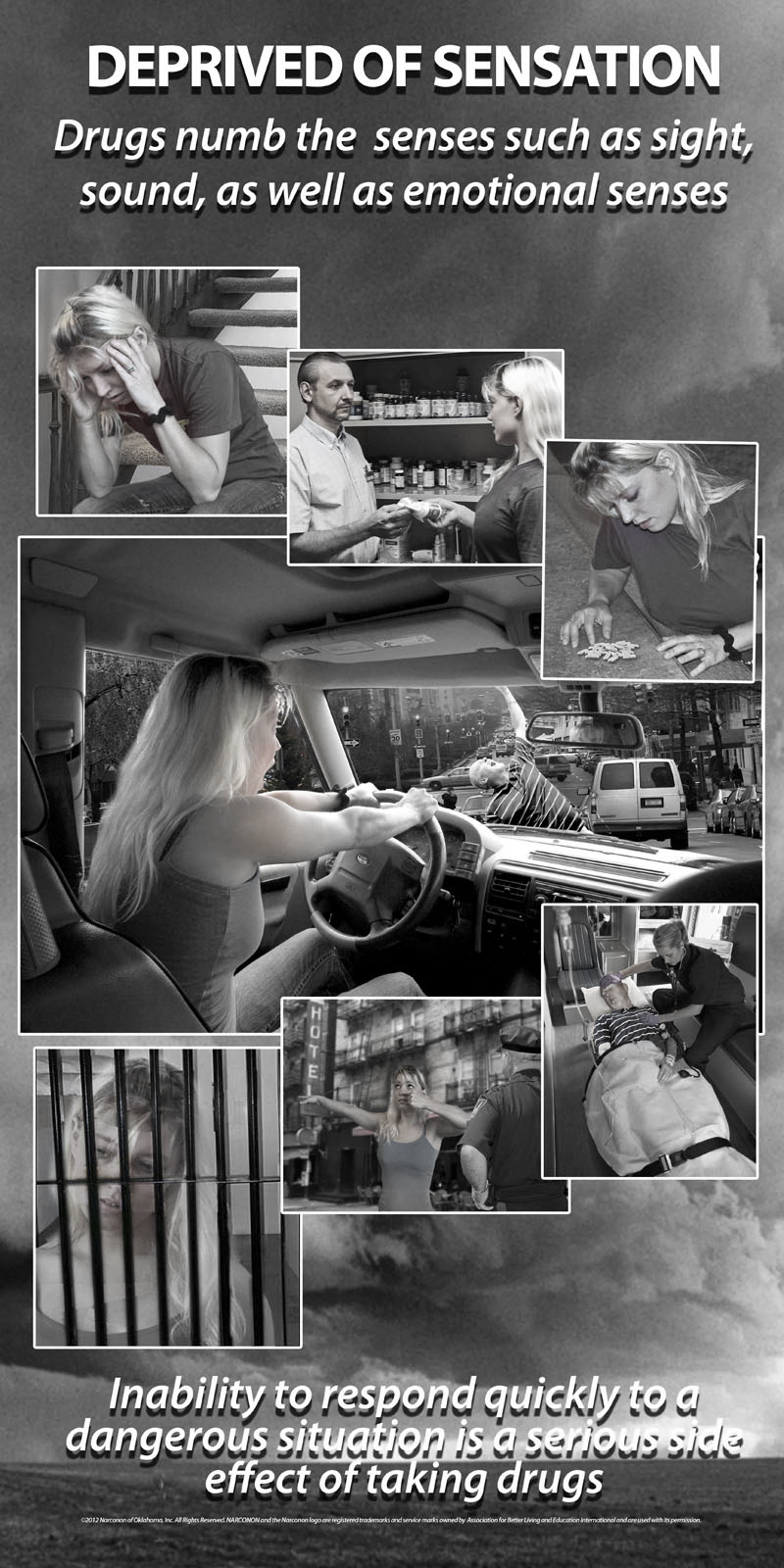 Most individuals are well aware of the fact that alcohol consumption can make an individual unable to respond to certain stimuli in their environment. Their response time is slow and ineffective, and they can be highly dangerous behind the wheel of a vehicle. While some may not consider alcohol to be a drug in the same class as heroin, cocaine or ecstasy, it is a perfect example of how drugs can numb the individual’s senses.
Most individuals are well aware of the fact that alcohol consumption can make an individual unable to respond to certain stimuli in their environment. Their response time is slow and ineffective, and they can be highly dangerous behind the wheel of a vehicle. While some may not consider alcohol to be a drug in the same class as heroin, cocaine or ecstasy, it is a perfect example of how drugs can numb the individual’s senses.
“The Truth About Becoming Addicted”
Narconon Arrowhead, a drug rehabilitation facility in Oklahoma, has recently released a free booklet that outlines the causes and effects of drug addiction. One of the many effects of regular drug use and addiction is a numbing of normal physical and emotional senses. The reason for this is quite simple – the chemical toxins in drugs have affected the individual’s nervous system in order to suppress unwanted sensations like pain, depression or anxiety. However, the drug’s work is not limited to suppressing unwanted sensations alone, and also acts to suppress other senses as well. Following are five ways drugs numb the senses:
1. Numbed sense of smell
Different drugs may have different effects on the individual’s sense of smell, and drugs taken by inhalation – like cocaine – can numb the sense of smell more thoroughly and permanently.
2. Numbed sense of taste
Drugs tend to deprive the body of nutritional stores, and can cause imbalances that affect the individual’s sense of taste.
3. Numbed sense of sound
Because drugs act in the body’s nervous system, they can impede or affect the neurotransmitters that are responsible for communicating the sense of sound.
4. Numbed sense of normal emotion
It is not unusual for a drug addict to experience sudden and dramatic shifts in mood and behavior. Over time, their ability to feel and express normal emotions can be numbed, and they may seem perpetually depressed and unemotional.
5. Numbed sense of environment
While a drug addict may be aware that drugs have changed how he acts in some ways, he is rarely aware of the full effects his drug use has caused, including his reduced awareness of the world around him and his inability to think or act quickly in dangerous situations.
More about Narconon Arrowhead
Narconon Arrowhead is located in southern Oklahoma on the hills overlooking Lake Eufaula. The residential rehabilitation center is home to up to two hundred individuals at a time, and provides a peaceful setting for program participants to recover.
Many individuals who are struggling with substance abuse problems find that resolving the mental and physical cravings for drugs are the most difficult problem to contend with. In order to help the individual resolve this, the Narconon program helps the individual through a drug-free withdrawal program with vitamins and physical assists. Then, the program student participates in a course designed to help draw them out of their past and the upsets therein, and more into the present environment. The program student then completes a sauna detoxification program to rid their body of residual drug toxins and thereby reduce or eliminate future drug cravings.
Because the substance-abusing individual often turned to drugs and alcohol because of difficult and upsetting conditions in their life, the Narconon program includes a series of life skills courses that help the individual learn how to communicate better with othersthose around them, how to control and change the conditions in their life, and how to build healthy relationships with others. The student also learns about personal integrity and how to create and maintain a happy life. The point of the Narconon life skills courses is to give the student workable solutions for handling the sometimes difficult parts of their life so that they don’t turn to drugs again in the future.
Life is full of wonderful sensations that are stolen away by drug use. If you or someone you know is affected by drug addiction, see our newest Narconon Arrowhead news release and click on the link to request your free copy of “The Truth About Becoming Addicted”.